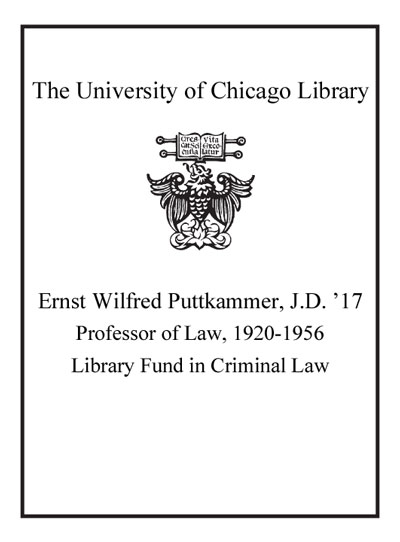Review by Publisher's Weekly Review
The protagonists of this ambitious account are an elusive figure named Effective Anti-Crime Legislation and the tragic John Q. Public; Partisan Politician, Lobbyist and the Media play supporting roles. Gest, an award-winning writer for U.S. News and World Report, reenacts the 30-year modern American crime drama to show that we are shooting in the dark, so to speak, in our crime legislation we don't know what is effective in reducing crime. In his extensive research, he interviewed key crime-fighters, including former U.S. Attorneys General Edwin Meese and Janet Reno, and federal legislators Arlen Specter, Edward Kennedy and Joseph Biden. Gest presents back-room views of laws and administration policies that range from "Just Say No" and Three Strikes, to the truth-in-sentencing initiative and juvenile boot camps. Since the mid-'60s, when conservative Republican Barry Goldwater "put crime on the national agenda," politicians have tried to appear tough on crime. Gest largely attributes ineffective crime legislation to inconsistent leadership, ideological bickering, misguided theatrics and hasty, simplistic solutions, particularly following the Columbine and Polly Klaas tragedies. He takes the media to task for sensationalism and ignoring meaningful debate and success stories. Gest notes promising, mostly grassroots (as opposed to federal) reforms and offers a seed plan for smarter crime-fighting. But this dense, scholarly book lacks enough concrete examples to ground the lay reader. Students of crime, sociology and politics should find it rather informative. (July) (c) Copyright PWxyz, LLC. All rights reserved
(c) Copyright PWxyz, LLC. All rights reserved
Review by Library Journal Review
Journalist Gest argues in this critical look at the federal war on crime that since 1964, when Barry Goldwater unsuccessfully tried to make crime a national political issue, both liberal Democratic and conservative Republican administrations alike have co-opted Goldwater's initiative and tried to exploit the issue for their own political gain without solving the problem. The result has been disastrous, Gest believes simplistic, punitive legislation based solely on political criteria ("getting tough on crime") rather than on criminological research. Crime-related problems such as youth gangs, drug use, and teen violence, which previously were matters of state and local law, became federalized and instead of looking at root causes of crime and trying to rehabilitate offenders, politicians have turned to catchall, politically popular devices such as trying young offenders in adult courts and imposing mandatory minimum sentences. Gest is particularly critical of the mass media for sensationalizing crime rather than reporting on anticrime practices. The options he suggests, however, are modeled on isolated regional efforts that try to target specific causes of crime and are largely untested. Although Gest puts his hope on these one-shot programs, he leaves readers with a stark portrait of a national problem that has no clear solution. Jack Forman, San Diego Mesa Coll. Lib., San Diego (c) Copyright 2010. Library Journals LLC, a wholly owned subsidiary of Media Source, Inc. No redistribution permitted.
(c) Copyright Library Journals LLC, a wholly owned subsidiary of Media Source, Inc. No redistribution permitted.
Review by Publisher's Weekly Review
Review by Library Journal Review

